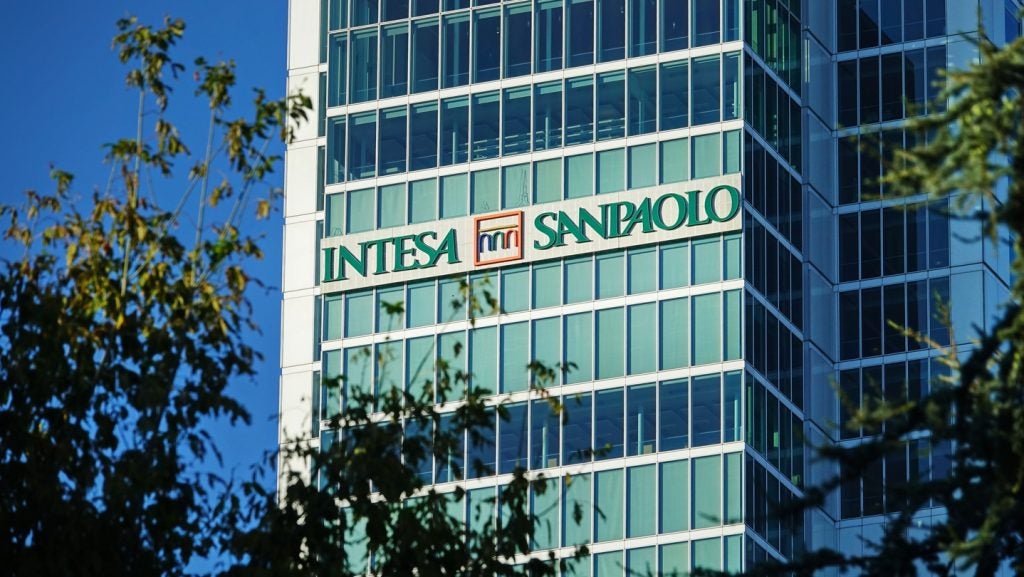A battered UK banking industry, already hit by a deteriorating
economy, could be facing one of its greatest competitive threats to
date.
Tesco, the UK’s largest grocery and retailing store (and world’s
third-largest after Wal-Mart and Carrefour), has taken full
ownership of its £2 billion ($4 billion) banking joint venture from
the Royal Bank of Scotland and announced plans to expand
aggressively into all areas of retail banking.
Tesco, the UK’s largest grocery and retailing store (and world’s
third-largest after Wal-Mart and Carrefour), has taken full
ownership of its £2 billion ($4 billion) banking joint venture from
the Royal Bank of Scotland and announced plans to expand
aggressively into all areas of retail banking.
The company plans to put branches into its larger stores, expand
its online distribution – it already sells over 55 percent of its
banking products online – and add new products such as mortgages
and current accounts to its established insurance, credit card and
personal loan business lines.
A battered UK banking industry, already hit by a
deteriorating economy, could be facing one of its greatest
competitive threats to date.
It has been trialling an expanded branch service already, in
Scotland, testing customer use of financial advisers, computer
terminals and promotional activity.
How well do you really know your competitors?
Access the most comprehensive Company Profiles on the market, powered by GlobalData. Save hours of research. Gain competitive edge.

Thank you!
Your download email will arrive shortly
Not ready to buy yet? Download a free sample
We are confident about the unique quality of our Company Profiles. However, we want you to make the most beneficial decision for your business, so we offer a free sample that you can download by submitting the below form
By GlobalDataWhat should send shockwaves through established UK banks is
Tesco’s huge understanding of customer loyalty, its excellence in
retailing service and its brand proposition as a consumer
champion.
Its Tesco Clubcard points-based loyalty scheme is one of the
world’s biggest such programmes, with over 13 million active
cardholders. It has also led the field in online grocery shopping
in the UK and recently launched a powerful online price comparison
web service, TescoCompare.com.
A Tesco insider told RBI: “Anything we do, we do
properly. We look long and hard at [it] before making a move.
“This is a good time to launch into the UK market [despite the
wider market problems] as we will exploit our knowledge of
retailing services to offer a better retail banking
proposition.”
The insider added that, at least in the short term, the Tesco
Personal Finance brand would remain unchanged.
A spokesperson for Sainsbury’s Bank, a rival 50:50 joint venture
between HBOS and the UK’s third-largest grocery chain, Sainsbury’s,
said: “We are fully aware of the move by Tesco. We are always
looking at ways to enhance our offering but we are not looking to
make a similar move right now.”
Overall, Tesco is looking to make £1 billion in profit from its
retailing services division – made up of Tesco.com, Tesco Telecoms
and Tesco Personal Finance – against £400 million in 2007. The
spokesperson for the company would not say how much of this £1
billion would be sourced from financial services or in what
timeframe, only stating that it would be within a decade.
And they did not rule out the company expanding its retail
banking business outside of the UK: Tesco has established grocery
stores in 12 other countries including Poland (opened in 1995),
South Korea (1999), Japan (2003), Turkey (2003), China (2004) and
the US (2007).
Unlocking potential growth
Tesco paid Royal Bank of Scotland £950 million for the bank’s 50
percent stake in Tesco Personal Finance (TPF), stating that TPF had
now reached a size where “only sole ownership can unlock the
potential growth Tesco wants to see from the business in the
future”.
The unit made pre-tax profits of £206 million in fiscal 2007,
with estimates of £240 million for 2008 (year-end March
2009).
The group has 2,115 shops in the UK in total, complemented with
2,700 ATMs (in comparison, Royal Bank of Scotland has the UK’s
largest branch network at 2,278 branches). The TPF business has 5.6
million customers across a range of 26 products and services (10
new ones were rolled out last year, including a high-interest
online savings account and Tesco Dental Insurance).
In 2007, Tesco also opened 23 bureaux de change in key stores
along with 28 euro-enabled ATMs, aiming to capture a slice of the
holiday and travel market. The UK financial services profit pool is
worth at least £20 billion per annum, states the retailer, and
TPF’s current range of products have material market positions in
only two core categories: car insurance (4.3 percent); and credit
cards (6.9 percent).
For 2007, it had total credit card receivables of £1.9 billion
and 1.3 million active accounts, stating that its high-quality,
low-risk credit card book is evidenced by a low level of credit
card arrears, with just 0.4 percent of balances three months in
arrears.
It has much smaller market shares in home insurance (2.0
percent) and savings (0.8 percent) but believes “there is a
considerable opportunity for our innovative and customer focused
offers both to build share in existing categories and to enter new
segments successfully”.
It also has a £1.6 billion loan book with approximately 210,000
personal loan customers; and 390,000 savings account customers with
total savings balances of £2.7 billion.
Possible brand damage
Asked about possible brand damage to the ‘Tesco’ name by a more
high-profile move into mortgages – and the consequent possibility
of having to repossess people’s houses – the Tesco spokesperson
said that the company was fully aware of the possible negative
aspects of retail banking but that they “come with the job”.
Tesco as a group cemented its lead in the UK grocery market in
2007. Sales increased by 11.1 percent to £51.8 billion, with
underlying group profit up 11.8 percent to £2.85 billion (meaning
TPF contributed 7.3 percent to group profit). Its international
division saw sales and profits rise 25.3 percent and 24.3 percent,
respectively. Group non-food sales rose 12 percent to £11.8
billion.







